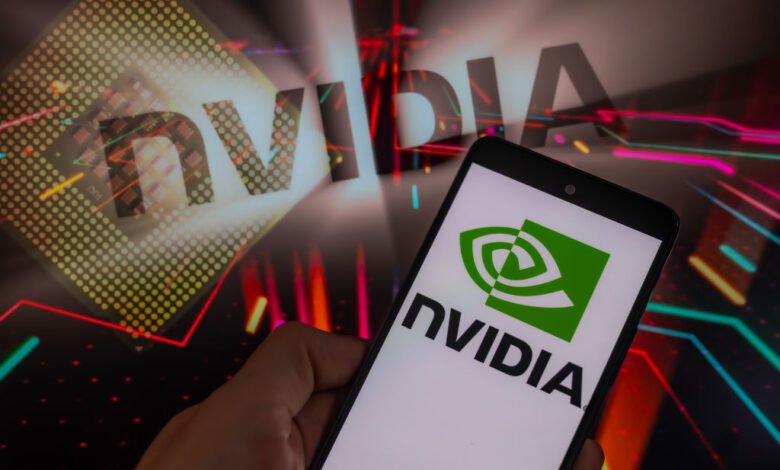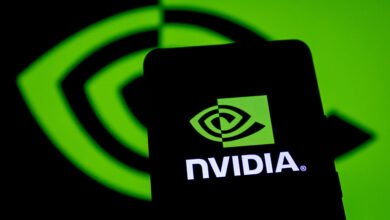Nvidia Deepens AI Partnerships with Hyundai, Samsung, SK, Naver

▼ Summary
– Nvidia CEO Jensen Huang visited South Korea to announce expanded partnerships with Korean tech companies and the government to boost AI infrastructure and capabilities.
– South Korea will acquire over 260,000 of Nvidia’s latest GPUs, with 50,000 for public AI initiatives and over 200,000 for companies like Samsung and Hyundai to drive innovation.
– Samsung and Nvidia are collaborating to build an AI Megafactory using over 50,000 GPUs and the Omniverse platform to optimize manufacturing and develop next-generation HBM4 memory.
– Hyundai and Nvidia are partnering to advance physical AI technologies, focusing on autonomous mobility and smart factories using 50,000 Blackwell GPUs and establishing AI research centers.
– SK Group is building Asia’s first enterprise-led manufacturing AI cloud with Nvidia, while Naver is developing a Physical AI platform to connect digital and physical worlds across industries.
Nvidia is significantly expanding its footprint in South Korea, marking a major strategic push into one of the world’s most technologically advanced markets. During his first visit to the country in fifteen years, CEO Jensen Huang revealed deepened alliances with industry leaders Hyundai Motor, Samsung, SK Group, and Naver. These collaborations, announced alongside the South Korean government at the APEC Summit 2025, are designed to substantially boost the nation’s AI infrastructure and its capabilities in physical AI systems. This initiative aligns with recent U.S. technology agreements with South Korea and Japan, focusing on critical emerging fields like artificial intelligence, semiconductors, and 6G communications.
A central component of this expanded partnership involves a massive procurement of computing power. The South Korean government confirmed it will secure more than 260,000 of Nvidia’s latest GPUs to address the soaring demand for AI processing. A portion of these, approximately 50,000 units, will be dedicated to public-sector projects. This includes the development of homegrown AI foundation models and the establishment of a national AI data center. The remaining 200,000-plus GPUs will be allocated to corporate partners like Samsung, SK, Hyundai Motor Group, and Naver. These resources will fuel AI-driven manufacturing innovation and the creation of specialized AI models for various industries.
The long-standing partnership between Nvidia and Samsung is entering a new phase with the creation of an AI Megafactory. This facility will integrate artificial intelligence into every step of Samsung’s manufacturing processes for semiconductors, mobile devices, and robotics. Leveraging over 50,000 Nvidia GPUs and the Omniverse platform, the factory will form an intelligent network that can analyze, predict, and optimize production in real time. Furthermore, the two companies, who have collaborated for more than a quarter-century, are now working together on HBM4, a next-generation memory technology crucial for future AI applications.
In the telecommunications sphere, Nvidia is joining forces with Samsung, South Korea’s three major telecom operators, SK Telecom, KT, and LG Uplus, and the Electronics and Telecommunications Research Institute (ETRI) to co-develop AI-RAN. This technology integrates artificial intelligence directly into mobile base stations to enhance network performance and reduce battery consumption. Under a new agreement, these partners will jointly work on next-generation AI-RAN systems and establish a global testbed for further development and validation.
Hyundai Motor Group is partnering with Nvidia to construct advanced AI infrastructure with a focus on physical AI applications. This collaboration will concentrate on autonomous mobility, smart factories, and robotics. The companies plan to utilize 50,000 NVIDIA Blackwell GPUs for comprehensive AI model training, validation, and deployment. To strengthen South Korea’s position in this field, they will also establish AI research centers within the country. Jensen Huang emphasized the transformative potential, stating that together with Hyundai, they are building intelligent cars and factories that will define the future of the multitrillion-dollar mobility industry.
SK Group, the parent company of memory chipmaker SK Hynix, is teaming up with Nvidia to construct Asia’s first enterprise-led manufacturing AI cloud. This initiative will utilize Nvidia’s simulation and digital twin platforms, with access being offered to the government, public institutions, and domestic startups to foster broader innovation.
Naver Cloud, the cloud computing division of the Korean search giant Naver, is collaborating with Nvidia to develop a next-generation “Physical AI” platform. This system is designed to bridge the physical and digital worlds, with plans to deploy AI infrastructure across vital sectors such as semiconductors, shipbuilding, energy, and biotechnology. The goal is to speed up the implementation of AI solutions that are finely tuned for real-world industrial settings. Naver’s founder, Hae-jin Lee, described this as the dawn of an era where AI operates directly within industrial sites and systems.
These extensive partnerships with South Korea’s tech titans illustrate a powerful trend: the deep fusion of artificial intelligence with hardware across multiple sectors. From Samsung’s intelligent manufacturing networks and Hyundai’s software-defined vehicles to SK’s industrial AI cloud and Naver’s physical AI services, these alliances demonstrate how global technology leaders are uniting to architect the next wave of intelligent systems.
This flurry of activity in South Korea follows a series of other major partnership announcements from Nvidia with companies like Eli Lilly, Palantir, Uber, and Joby Aviation, as well as with the U.S. Department of Energy. As CEO Jensen Huang addressed concerns about a potential AI bubble, the market responded positively, propelling Nvidia’s stock to new heights and making it the first publicly traded company to achieve a market capitalization exceeding $5 trillion.
(Source: TechCrunch)





